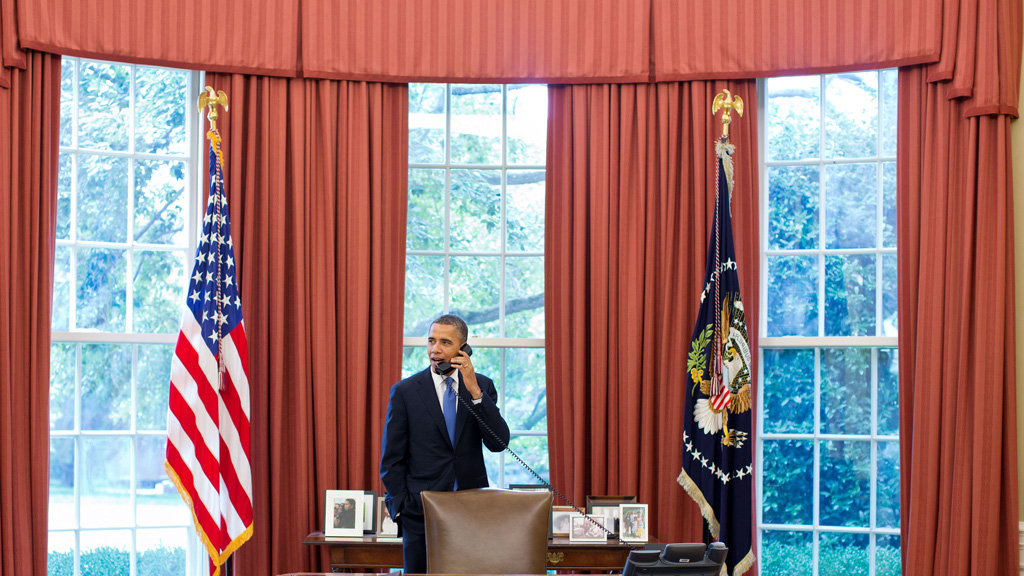US election: What does it take to be president?
As Barack Obama and Mitt Romney make their final sprint for the White House, we look at the presidential CV and the major challenges facing the next administration.

With both men neck-and-neck in the polls, a last-minute campaign has been taking place to secure the votes of Americans in several swing states and assure voters that each candidate has what it takes to do the top job.
The US constitution describes the two major functions of the president as being able to serve as the government’s chief executive to legislate and create policies and to protect America as the commander-in-chief of the armed forces.
But senior fellow at Chatham House and former director for the US National Security Council, Xenia Dormandy, told Channel 4 News that the most important part of being a president is finding the balance between domestic and foreign issues.
“A US president has to watch out for the interests of the American state, that’s his principal role. Those interests can include everything from military engagement in other countries to boosting domestic growth and building alliances across partisan divides.
Security at home
“Americans feel that domestic issues are by far the most important. They judge the president’s achievements on their own lifestyle and security at home. As far as foreign policy goes, it’s a pass or fail, they expect the president to pass a bar, but beyond that it doesn’t matter.
But Ms Dormandy told Channel 4 News that lines can’t be drawn between issues at home and abroad.
“Foreign and domestic issues are so interconnected that they can’t be separated.
“For example, America’s relationship with China will have an impact on business at home. And what happens in Iran has huge implications on the price of oil and whether America will go to war.
“But you can’t just focus on one issue. As a president of the USA, just like any world leader, you have to juggle or you’ll lose momentum.”
Protecting America
Two foreign policy issues which have dominated the presidential campaigns and are set to prove a challenge for the next administration are Iran and Syria.
The heightened tensions surrounding Iran and its nuclear programme are set to continue for the next administration. Romney has repeatedly condemned a nuclear Iran, which he says he cannot accept under any circumstances.
Ms Dormandy told Channel 4 News that there are “all sorts of implications and complications with these issues, not least around Israel.”
She says that while these are “two huge issues for the president to deal with”, decisions must be made on Syria within the next year.
The Devil you know
President Obama has used his final campaign blitz of recent days to assure voters that after four years, they know who he is and can trust him to “keep fighting for change”.
Romney, on the other hand, has vowed to “begin a better tomorrow” for America and undo “Obama’s mistakes”.
But politics aside, is there an argument, especially in uncertain times, for choosing a leader who already has experience in the job?
Xenia Dormandy says that a new administration has been shown to stall movement on foreign policy.
“There’s no question that every time a new leader comes in to power, there’s a hiatus in terms of foreign policy of at least a year to 18 months.
“The other big question is Congress and what it allows you to do. Regardless of who wins the election, both administrations will have to deal with a fractured congress,” she said.
Not about the money
As arguably one of the world’s most powerful people, one might expect the president to earn a salary on par with some of America’s top chief executives.
Barack Obama earns a base salary of $400,000 per year, or just under £250,000. Added extras, including an expense account, bump up the annual income to a total of around $550,000 a year.
But the salary of America’s chief executive still sounds relatively meagre when compared to the staggering salaries of CEOs elsewhere, including the head of JPMorgan Chase, who takes home $41m a year.
